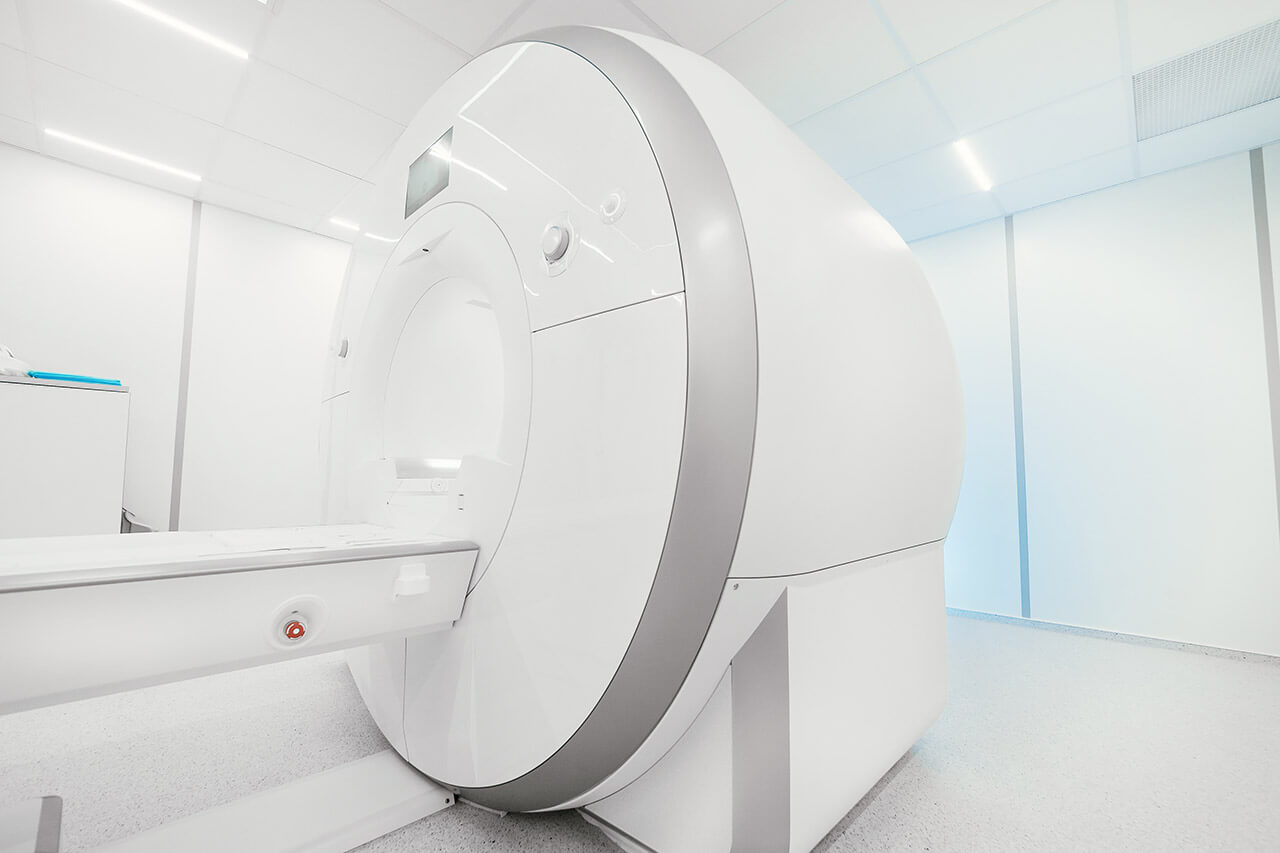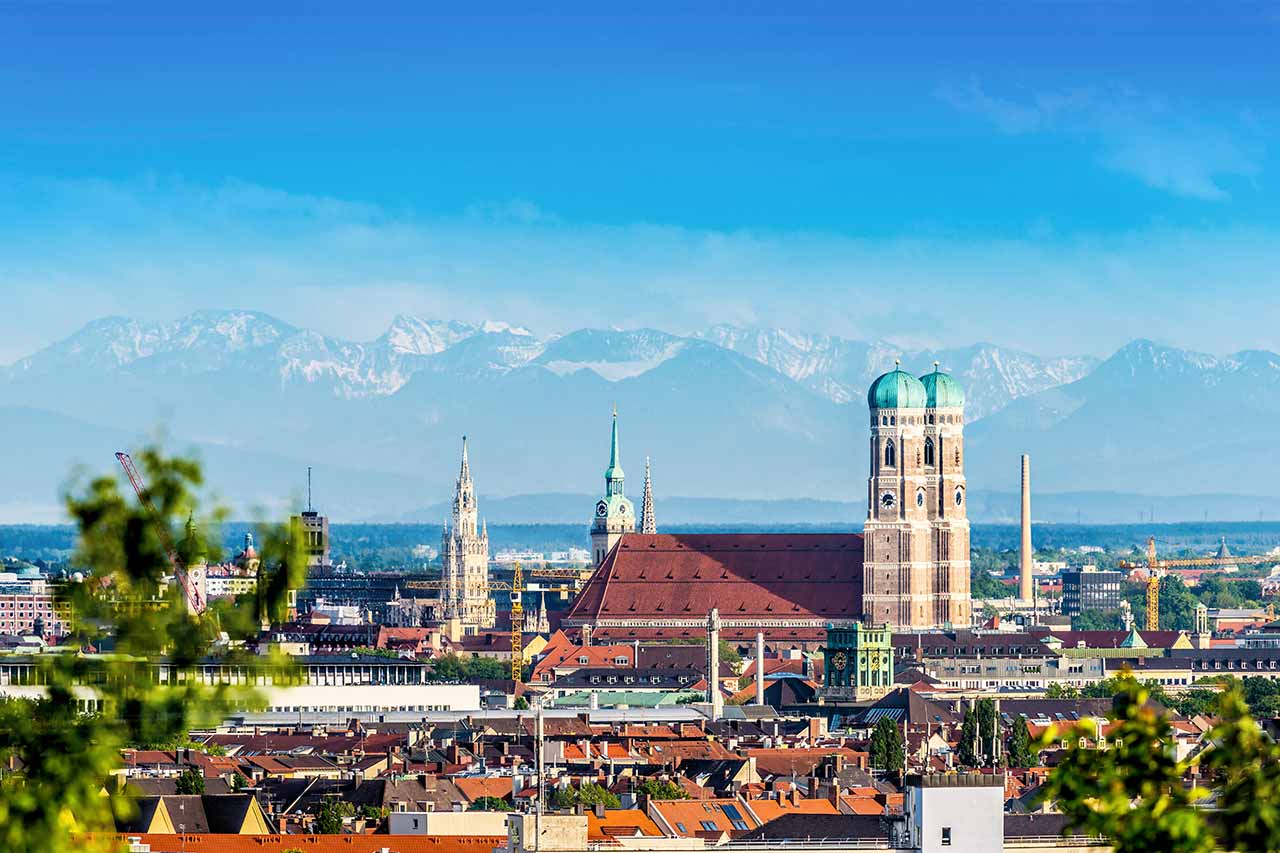
The program includes:
- Initial presentation in the clinic
- clinical history taking
- review of medical records
- physical examination
- laboratory tests:
- complete blood count
- biochemical blood test
- inflammation markers (CRP, ESR)
- blood coagulation analysis (aPTT, PT, INR)
- ultrasound of the abdomen
- gastroscopy
- nursing services
- consultation of related specialists
- treatment by chief physician and all leading experts
- explanation of individual treatment plan
Required documents
- Medical records
- Fibrogastroduodenoscopy (FGDS) (if available)
Service
You may also book:
 BookingHealth Price from:
BookingHealth Price from:
About the department
The Department of Pulmonology at the Martha-Maria Hospital in Munich offers the full range of medical services in the field of its competence. The department provides patients with various laboratory, instrumental and interventional diagnostic examinations, as well as with highly effective medical care. Depending on the severity of the clinical case, the department's doctors carry out drug therapy, mechanical ventilation and many interventional therapeutic procedures. If it is necessary to perform surgery on the organs of the thorax, thoracic surgeons are engaged in the therapeutic process. Of particular interest to the department's specialists is the provision of medical care to patients with bronchial asthma, chronic obstructive pulmonary disease, pulmonary fibrosis, lung cancer and pulmonary hypertension. The department's specialists work in accordance with current clinical protocols and recommendations of professional societies. The Head Physician of the department is Dr. med. Andreas Fertl.
The specialists of the medical facility have been treating malignant tumors of the lungs, mediastinal organs and pleura for many years. The department also successfully copes with the treatment of lung metastases. Lung cancer is one of the most common types of oncology. The symptoms of this disease are non-specific (cough, shortness of breath, chest pain, hemoptysis, etc.) and manifest themselves in the advanced stages, which complicates the treatment process. To confirm lung cancer, the department's specialists use advanced imaging tests: X-ray, computed tomography, magnetic resonance imaging, etc. Doctors also perform interventional bronchoscopic procedures, which allow them to examine the inner surface of the bronchial tree. Biopsy is an integral part of the diagnostic protocol for suspected lung cancer as well. After a comprehensive examination, the attending physician makes an accurate diagnosis. If a patient has a malignant tumor in the lungs, the specialist determines the stage of the oncological process and its spread, on which further treatment tactics depend. The main treatment methods for lung cancer include surgical tumor resection, radiation therapy, and chemotherapy. The department's doctors quite often resort to multimodal therapy, which includes a combination of several techniques. A treatment regimen for each patient is developed during an interdisciplinary tumor board by doctors from related medical disciplines. The competence of the department's doctors also includes palliative treatment in patients with end-stage lung cancer. The goal of such therapy is to relieve pain and ensure a decent quality of life to the patient. In addition, patients often have airway obstruction or pulmonary hemorrhage in the advanced stages of oncology. In such cases, the department's pulmonologists perform modern endoscopic procedures.
The department also provides high-quality medical care to patients with benign respiratory diseases. The most common pathologies in clinical practice are bronchial asthma, chronic obstructive pulmonary disease, interstitial lung disease, and pulmonary hypertension. The treatment of the above mentioned pulmonary diseases includes the use of conservative methods. The patients are prescribed highly effective drug therapy regimens and well-chosen breathing exercises. The patients are also strongly recommended to quit smoking, if they have this bad habit.
Doctors have successful experience in the treatment of infectious respiratory diseases: pneumonia, tuberculosis, non-tuberculous mycobacteria and others. As a rule, a course of drug therapy is sufficient to restore the health of patients with such pathologies.
The department specializes in the diagnostics and treatment of the following diseases:
- Benign respiratory diseases
- Chronic inflammatory lung diseases: bronchial asthma, chronic obstructive pulmonary disease
- Infectious lung diseases: pneumonia, tuberculosis and non-tuberculous mycobacteria
- Interstitial lung disease: idiopathic pulmonary fibrosis and lung lesions due to autoimmune diseases
- Sarcoidosis
- Pulmonary hypertension
- Sleep-related breathing disorders and hypoventilation syndrome
- Malignant respiratory diseases
- Lung cancer (small and non-small cell lung cancer and other endobronchial tumors)
- Malignant pleural diseases: pleural mesothelioma
- Metastases of other tumors in the lungs
- Other diseases and pathological conditions
The department's diagnostic and therapeutic range of services includes:
- Diagnostics
- Heart and pulmonary function tests
- Blood gas test
- Spirometry
- Body plethysmography
- Lung diffusion test
- Specific and nonspecific inhalation provocation tests
- Respiratory muscle function assessment
- 6-minute walk test
- Spiroergometry
- Ergometry
- Long-term ECG and 24-hour blood pressure monitoring
- Right heart catheterization, including vasoreactivity testing in pulmonary hypertension
- Diagnostic bronchoscopy
- Rigid and flexible bronchoscopy with biopsy
- Endobronchial ultrasound scanning
- Bronchoalveolar lavage
- Diagnostics using a cryoprobe
- Thoracoscopy
- Pleurisy diagnostics
- Pleural biopsy
- Diagnostic tests to detect allergic reactions
- Prick tests and intracutaneous tests
- IgE level determination
- Inhalation provocation testing
- Ultrasound diagnostics
- Pleural puncture, ultrasound-guided biopsy of the lungs and lymph nodes
- Abdominal ultrasound
- Transthoracic and transesophageal echocardiography
- Doppler scanning of the blood vessels
- Heart and pulmonary function tests
- Treatment
- Thoracoscopy
- Pleurodesis
- Therapeutic bronchoscopy
- Bronchoalveolar lavage
- Thulium laser therapy
- Endoscopic hemostasis
- Removal of a foreign body from the trachea and bronchi
- Implantation of tracheal and bronchial stents
- Bronchial thermoplasty for bronchial asthma
- Endoscopic lung volume reduction for COPD
- Treatment of allergic reactions
- Hyposensitization (subcutaneous immunotherapy, sublingual immunotherapy)
- Adaptive decontamination for acetylsalicylic acid intolerance syndrome
- Treatment of malignant tumors of the lungs, mediastinal organs and pleura, as well as metastases of other tumors in the lungs
- Surgical tumor resection (in collaboration with thoracic surgeons)
- Radiation therapy
- Chemotherapy
- Multimodal therapy combining several treatment options
- Palliative care
- Home mechanical ventilation
- Initiation and follow-up monitoring of patients on invasive and non-invasive home mechanical ventilation
- Thoracoscopy
- Other diagnostic and therapeutic options
Curriculum vitae
University Education and Professional Career
- 1989 - 1996 Study of Medicine, Ludwig Maximilian University of Munich.
- 1995 - 1998 Thesis in Pulmonology, University Hospital of Ludwig Maximilian University of Munich. Degree of Candidate of Natural Sciences.
- 1996 - 1997 Work in the Department of Gastroenterology and Hepatology at the Academic Hospital Bogenhausen Munich.
- 1998 Work in the Department of Infectology, Central Hospital Gauting.
- 1998 - 2000 Work in the Intensive Care Unit at the Hospital Ebersberg.
- 2000 - 2012 Work in the Department of Pulmonology and Intensive Care at the Specialized Pulmonary Clinic Asklepios Munich-Gauting.
- Since 2012 Head Physician of the Department of Pulmonology at the Martha-Maria Hospital in Munich.
Main Areas of Specialization
- Lung diseases.
- Resuscitation measures.
- Treatment of thoracic cancers.
- Allergology.
Memberships in Professional Societies
- German Society of Pulmonology.
- German Association of Internists.
Photo of the doctor: (c) Diakoniewerk Martha-Maria e.V.
About hospital
The Martha-Maria Hospital Munich is one of the medical facilities of the Martha-Maria Diaconal Enterprise, as well as an academic hospital of the Ludwig Maximilian University of Munich.This means a combination of state-of-the-art medicine with a humane attitude towards the patient's worries and his life situation. The hospital began its work back in 1889, so it is deservedly proud of its rich traditions and vast clinical experience.
With advanced technical equipment, modern operating rooms and highly qualified medical staff, the medical facility has the status of one of the leading in Bavaria. The entire staff of the hospital follows Christian traditions, which contributes to a humane and sympathetic attitude towards each patient.
The hospital offers such medical fields as general and abdominal surgery, thoracic surgery, endocrine surgery, otolaryngology and pulmonology. A highly qualified team of doctors works in each area, whose medical knowledge and experience allow them to deal with the treatment of even the most complex and rare clinical cases.
The professionalism and talent of the doctors of the hospital deserve special attention. All the specialists undergo a rigorous selection, so that patients can be sure that the treatment will be carried out by highly qualified doctors with a worldwide reputation. The doctors regularly undergo advanced training courses, attend symposiums and conferences, including international ones, where they learn about innovations in medicine and share their experience with other doctors.
The hospital has 120 beds for inpatient medical care. The quality of medical services and patient care at the hospital meets international standards. In addition, the medical center is located in a quiet and picturesque green area on the outskirts of Munich, which contributes to a rapid recovery and a calm state of mind for patients.
Photo: (с) depositphotos
Accommodation in hospital
Patients rooms
The patients of the Martha-Maria Hospital Munich live in comfortable single, double or triple rooms. The standard patient room includes a comfortable automatically adjustable bed, bedside table with a pull-out tray, TV, radio, telephone and Wi-Fi (at extra charge). Each patient room is equipped with an ensuite bathroom with a shower and a toilet.
If desired, you can book your stay in the enhanced-comfort patient room, which faces south and has a balcony overlooking the park. These patient rooms include a bathroom (daily towel change) with a hairdryer, high-quality furniture, a refrigerator, a closet, a reading lamp, a TV (free of charge), a telephone (at extra charge), Wi-Fi and a safe.
Meals and Menus
The hospital offers three meals a day. Breakfast is served buffet style. Different types of menus are available daily for lunch and dinner, juices and fruits are offered as well.
If for some reason you do not eat all the foods, you will be offered an individual menu. Please inform the medical staff about your food preferences prior to treatment.
Further details
Standard rooms include:
Accompanying person
Your accompanying person may stay with you in your patient room or at the hotel of your choice during the inpatient program.
Hotel
You may stay at the hotel of your choice during the outpatient program. Our managers will support you for selecting the best option.




